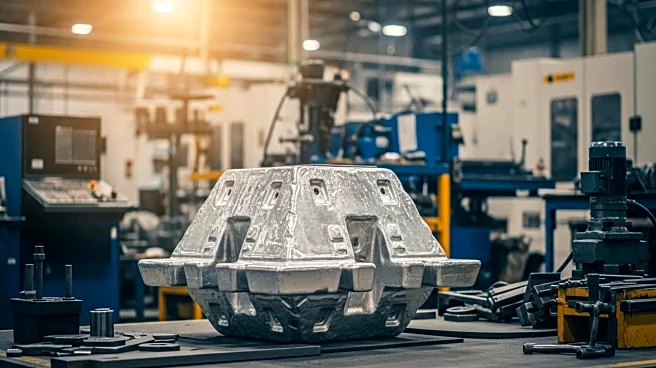What's Happening?
The aluminum tariffs imposed by President Trump are reportedly causing economic strain on U.S. manufacturing workers, despite his intentions to support them. Sachin Shivaram, CEO of Wisconsin Aluminum Foundry, highlights that the tariffs have increased input costs, leading to layoffs and financial challenges for workers. While the tariffs aim to boost domestic aluminum production, they have inadvertently raised costs for manufacturers reliant on imported aluminum, affecting their competitiveness and financial stability.
Why It's Important?
The tariffs illustrate the complex impact of trade policies on domestic industries and workers. While intended to protect American jobs, the increased costs can lead to reduced demand and job losses, counteracting the policy's goals. This situation highlights the need for careful consideration of trade measures and their broader economic implications. The manufacturing sector, a key component of the U.S. economy, faces challenges in adapting to these changes, which could influence future policy decisions.
What's Next?
Manufacturers may continue to advocate for policy adjustments to mitigate the negative effects of the tariffs. The ongoing economic impact could prompt discussions among policymakers about balancing protectionist measures with the needs of domestic industries. As the situation evolves, stakeholders will likely monitor the tariffs' effects on employment and industry health, potentially influencing future trade negotiations and economic strategies.









